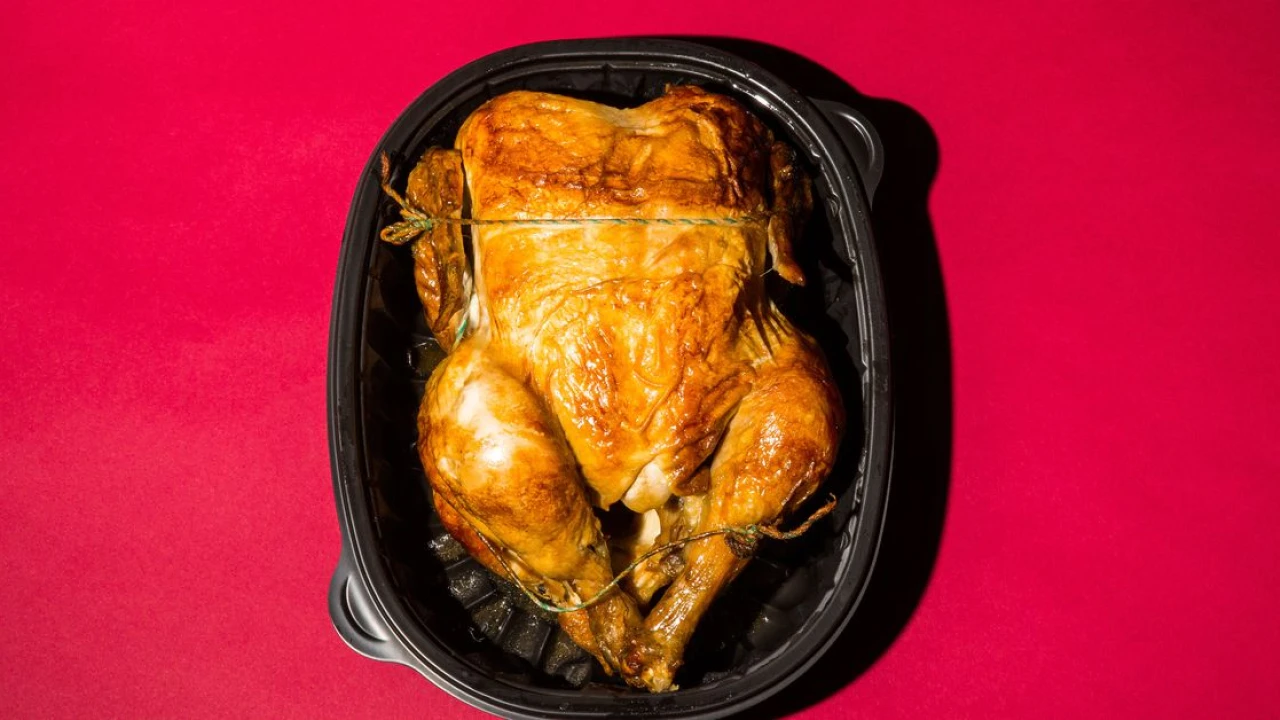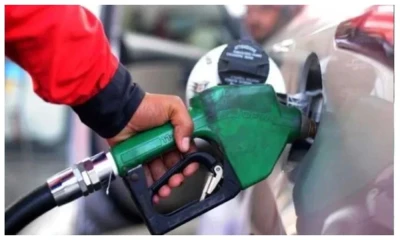Regional
You’re probably eating way too much protein
Plant-based foods, like beans and tofu, are great sources of protein. But in the search for good macros, we’re forgetting about fiber.

This story has been adapted from Meat/Less, Vox’s newsletter series to help you easily incorporate more plant-based foods into your diet. For five weeks, you’ll get challenges, recipes, and insights on how to make eating less meat work for you. Sign up here!
Americans are oddly obsessed with protein.
They eat around twice as much of it as the federal government recommends, and 60 percent of US adults are trying to get even more of it into their diets. And this obsession could be making us sick: Excessive protein consumption, especially from cholesterol-rich animal-based foods, is correlated with increased risk of cancer and heart disease.
This doesn’t just affect those following high-protein, keto, paleo, or low-carb diets (which, combined, is more than 1 in 5 Americans). It’s a problem for most Americans, especially men. One small, informal study in the UK even found that some men who want to reduce their meat consumption are embarrassed to order vegetarian meals among male friends.
Excessive protein consumption is also wrecking the planet, with meat and dairy production accounting for upward of one-fifth of greenhouse gas emissions.
Globally, most people exceed protein consumption recommendations, but Americans and Canadians take it to another level. Despite eating more protein than any other region, Americans and Canadians eat the least amount of plant-based protein — instead, they get it from animal meat, dairy, and eggs.
:no_upscale()/cdn.vox-cdn.com/uploads/chorus_asset/file/25246447/protein_requirement_per_country__1_.jpg)
This explains why one of the first questions people ask when they learn someone is vegetarian, or just reducing their meat intake, is “Where do you get your protein?” But there are many plant-based foods high in protein, like beans, tofu, tempeh, lentils, peanut butter, plant-based “meat” products, nuts, and soy milk.
Unless you’re pretty ambitious about bodybuilding, you probably don’t need to worry about whether you’re getting enough protein while trying to reduce meat consumption or become vegetarian.
“On a vegetarian or vegan diet, you can get enough protein if you eat an adequate number of calories from a variety of whole foods,” says Nancy Geib, a registered dietitian at the Cleveland Clinic’s Center for Diabetes and Nutrition. And if you are trying to gain a lot of muscle, it’s even possible to compete at the highest level of strength sports as a vegetarian or vegan: In 2016, Kendrick Farris — who is vegan — was the only American to compete in men’s weightlifting at the Rio Olympics.
But one nutrient the average American isn’t eating nearly enough of is fiber, and eating more plant-based foods is a surefire way to change that.
The fiber gap, explained
A 2021 study found only 7 percent of Americans get enough fiber, a problem nutritionists call the “fiber gap.” Fiber is critical because it’s “amazingly helpful in many ways: It slows the absorption of glucose — which evens out our blood sugar levels — and also lowers cholesterol and inflammation,” former Vox senior health correspondent Julia Belluz wrote.
A fiber-heavy diet is associated with reduced risk of heart disease, stroke, high cholesterol, hypertension, certain cancers, and more. It can also improve your gut health and help keep you more regular, if that’s important to you. Luckily, the most fiber-rich foods happen to be plants: beans, avocados, berries, whole grains, broccoli, potatoes, nuts, and dried fruit.
There are many health benefits to be reaped from a plant-based diet as well. According to the American Dietetic Association, well-planned vegan diets are healthful and nutritionally adequate and can contribute to the prevention and treatment of certain diseases. (Well-planned = eating in a way that is balanced and not obsessing over health or “purity.”) But let’s be clear: It’s not going to cure cancer, give you perfectly glowing skin, or make you feel amazing all the time, as some of the more fringe corners of the vegan internet might suggest.
Health and nutrition is a sensitive issue, as there’s loads of pseudoscience out there. You can be an unhealthy vegan or flexitarian, a healthy omnivore, or anywhere in between. (Talk to your doctor or a registered dietitian if you have questions about what’s best for you.)
What aspiring vegans should know about B12, iron, and more
According to a 2015 report from Faunalytics, an animal advocacy research organization, 26 percent of vegetarians and vegans quit their diet because they felt it wasn’t good for their health. That said, the main problems described — like not getting enough protein or iron — could have been addressed with some basic nutrition guidance. Let’s tackle those concerns.
The most important nutrient for vegans to pay attention to is vitamin B12, as it’s almost exclusively found in animal foods.
Vitamin B12 is critical to central nervous system development and function, healthy red blood cell formation, and DNA synthesis, and ignoring it can cause short- and long-term health issues for vegetarians and vegans, though healthy meat reducers under 60 years old need not worry about it.
But it’s easy to get adequate B12 (the recommended daily amount for adults is 2.4 micrograms) for just a few pennies per day. Take vitamin B12 in whatever form you’d like — pills, lozenges, or oral sprays, all of which can be purchased at your local pharmacy or grocery — and, when possible, eat B12-fortified foods (e.g., most breakfast cereals, nutritional yeast, and plant-based milks).
Another critical nutrient is iron. As with protein, some think it’s hard to get enough iron on a less- or no-meat diet, since meat and other animal products are high in iron. However, many plant-based foods are high in iron, too. For example, half a cup of cooked lentils has almost twice as much iron as 4 ounces of beef, and vegans and vegetarians usually consume more iron than omnivores, according to registered dietitian Ginny Messina.
The catch is that iron from plant-based foods — called non-heme iron — doesn’t absorb as well in the body as iron from animal sources. Because of this, vegetarians should eat almost twice as much iron as the recommended daily amount, which ranges from 8 to 27 milligrams, depending on age, sex, and whether you’re pregnant or lactating.
Like eating enough protein, that’s manageable because iron is found in a lot of commonly eaten plant-based foods: beans, lentils, soy products, nuts, seeds, squashes, dark leafy greens, oats, dried fruit, and quinoa. I recommend Messina’s “vegan nutrition primers” for more practical, evidence-based nutrition guidance.
Today’s challenge: Up your fiber
Now that you’re aware of the fiber gap, try to close it by eating a few fiber-rich foods this week — and be sure to share this story with anyone who asks how you’ll get enough protein on a less-meat diet.
-

 Pakistan 2 days ago
Pakistan 2 days agoPTI founder can only get relief from courts, says Ahsan Iqbal
-

 Pakistan 2 days ago
Pakistan 2 days agoNon-recovery of abducted boy leads to strike across Balochistan
-

 Pakistan 1 day ago
Pakistan 1 day agoNon-issuance of UAE visa to Pakistanis is lie: Consul General
-

 Regional 1 day ago
Regional 1 day agoCouple's wedding photoshoot in front of containers in Islamabad goes viral
-

 Sports 1 day ago
Sports 1 day ago2nd ODI: Zimbabwe set Pakistan target of 146 runs to win
-

 Business 1 day ago
Business 1 day agoPossibility of petrol shortage in twin cities, Lahore
-

 Pakistan 1 day ago
Pakistan 1 day agoPTI showdown: CIA building in Islamabad declared sub-jail
-

 Sports 2 days ago
Sports 2 days agoPakistan win toss, opt to field first against Zimbabwe in 1st ODI




























